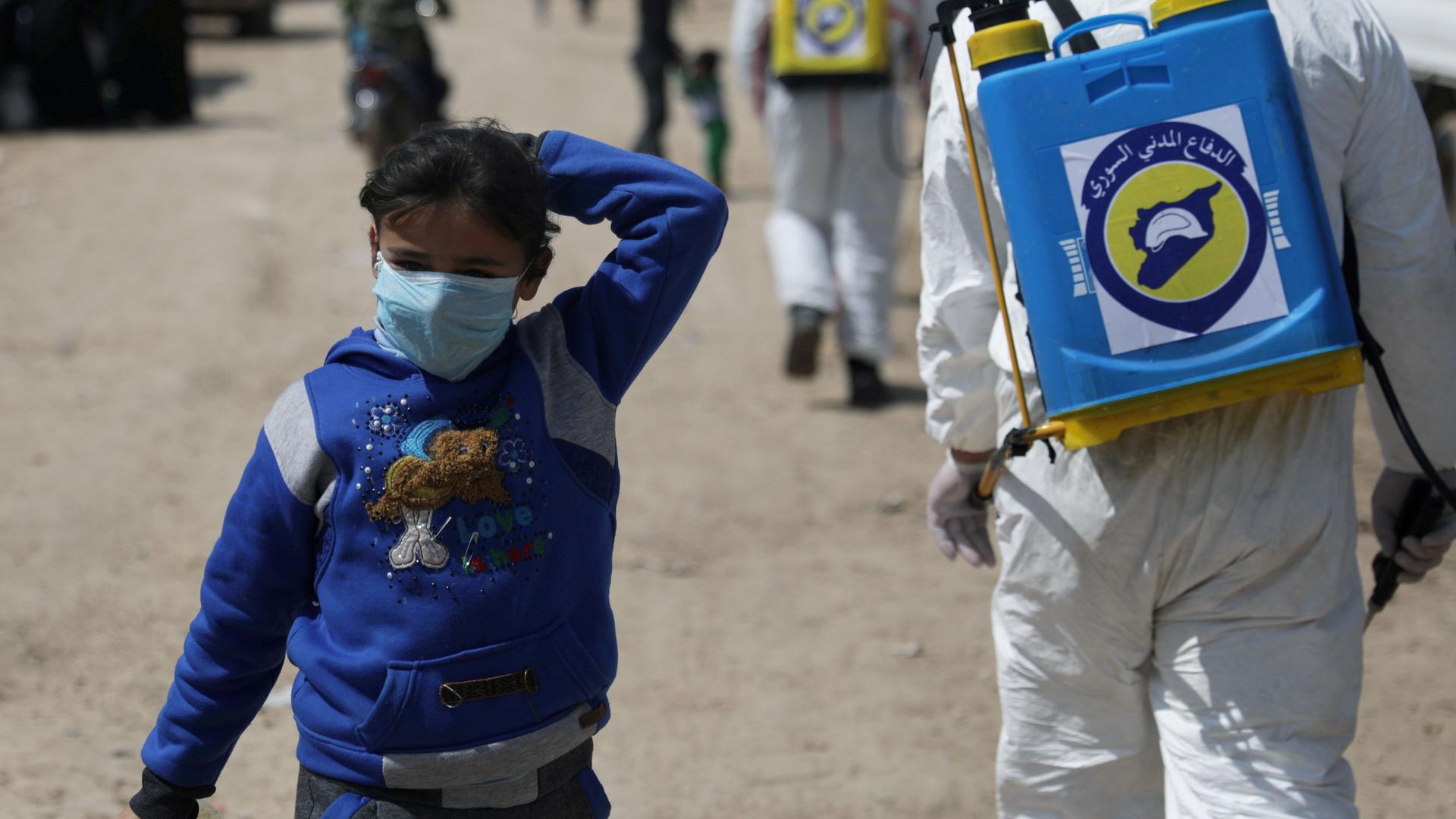Four years ago, Deman Abshir made a difficult choice: She and her husband Mohamed Ibrahim were living in a refugee camp in Ethiopia when they finally got approval to be resettled in the United States. Ibrahim was sick and needed medical treatment, so rather than delay getting their newborn daughter Nimco’s paperwork in order, they left the girl behind with her grandmother.
“It was very painful,” Abshir said, speaking in Somali through interpreter Sowdo Mohamed. The couple was resettled in Columbus, Ohio, where advocates at Community Refugee and Immigration Services have been fighting to bring Nimco to the US ever since.
A few weeks ago, everything seemed to finally be in order for Nimco to join her parents. Then, the coronavirus hit.
Related: US refugee agencies wither as Trump cuts resettlement numbers to historic lows
Now, Abshir doesn’t know when she’ll see Nimco again, and can only hope it’ll be soon. Because of the COVID-19 pandemic, the United Nations High Commissioner for Refugees (UNHCR), along with the International Organization for Migration (IOM), have put worldwide refugee resettlement on hold for “as long as it remains essential.” That has left Abshir’s family — and thousands of other refugees worldwide — in limbo.
“They’re refugees who are survivors of violence or torture. They’re unsafe where they’re living. These are sort of the people who really, really do need to be resettled. They need to be gotten out of there.”
“They’re refugees who are survivors of violence or torture,” said Yael Schacher, senior US advocate for Refugees International. “They’re unsafe where they’re living. These are sort of the people who really, really do need to be resettled. They need to be gotten out of there.”
Around 60,000 refugees who have fled war and persecution are resettled to safe countries each year. They represent a tiny fraction of the world’s 26 million refugees. Canada, the current world leader in resettlement, expected to welcome about roughly 30,000 refugees this year.
It’s hard to know how people in the pipeline will be affected by the current stop in resettlement, according to Shauna Labman, an associate professor of human rights at The Global College at The University of Winnipeg.
“Because it’s really hard to know how long this will actually continue,” Labman said. “The likelihood is it’ll slow down everything, of course.”
Related: Immigrants in US detention fear spread of coronavirus
That means families may stay separated longer: Many people in the process of coming to Canada are joining relatives who’ve already settled there.
“So, I’m sure a lot of people are left feeling extremely fearful in these moments. There’s a lot of precarity at play right now.”
“So, I’m sure a lot of people are left feeling extremely fearful in these moments,” Labman said. “There’s a lot of precarity at play right now.”
Jennifer Sime, senior vice president overseeing resettlement and integration for the International Rescue Committee, said she worries that some will see the suspension in refugee resettlements as confirmation of the unfounded fear that foreigners are bringing COVID-19.
“We’re already seeing here in the United States attacks against Asian Americans just because of the coronavirus,” she said.
Related: Can COVID-19 be contained in war-torn Syria?
Refugees approved for resettlement have gone through extensive health and security checks, Sime said. Officials are concerned they’ll be exposed and infected while traveling.
“What’s important also is to ensure that this pause in the resettlement program due to COVID-19 doesn’t become permanent and that this is not used as an excuse for stopping the resettlement program, even at a time when COVID-19 is no longer an issue,” Sime said.
Until the program resumes, Abshir said she and her husband in Ohio can do nothing but pray. They’ve just had another baby, a little boy — they can’t wait to introduce him to his big sister.
But they worry that back in Ethiopia, Nimco could be in danger. With little access to water and other basic services, advocates warn refugee camps could soon be hot spots for COVID-19. Abshir said for now, Nimco’s life is “in God’s hands.”
Our coverage reaches millions each week, but only a small fraction of listeners contribute to sustain our program. We still need 224 more people to donate $100 or $10/monthly to unlock our $67,000 match. Will you help us get there today?
